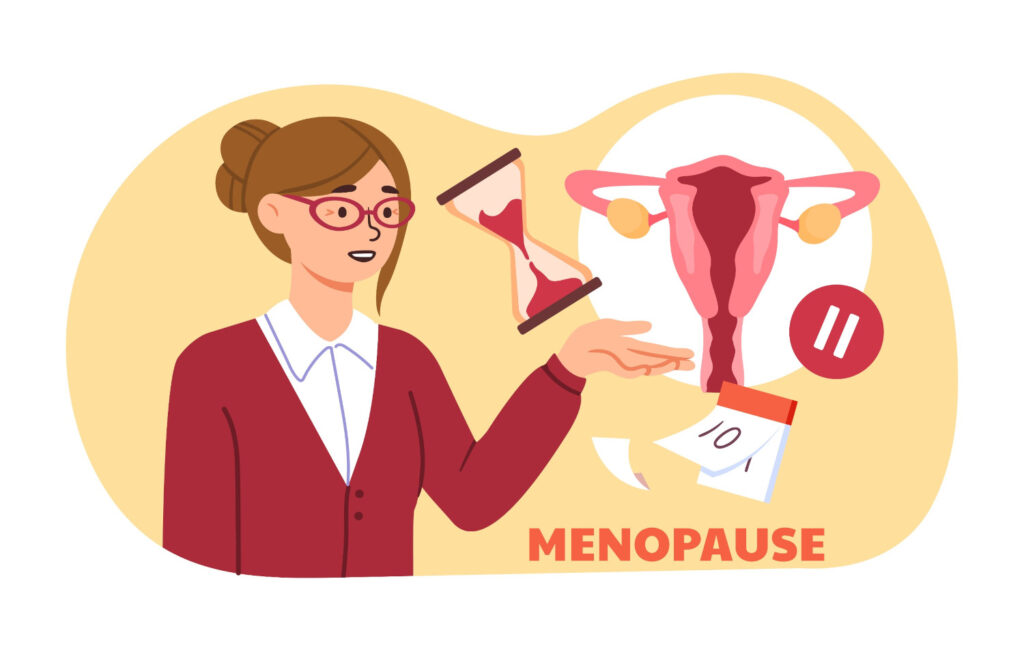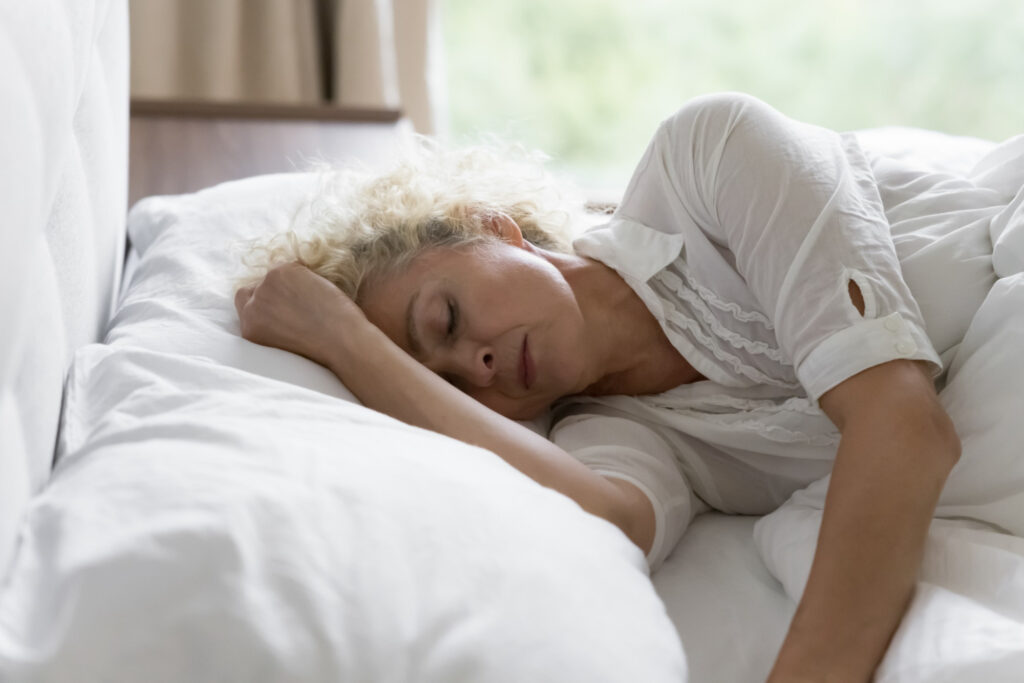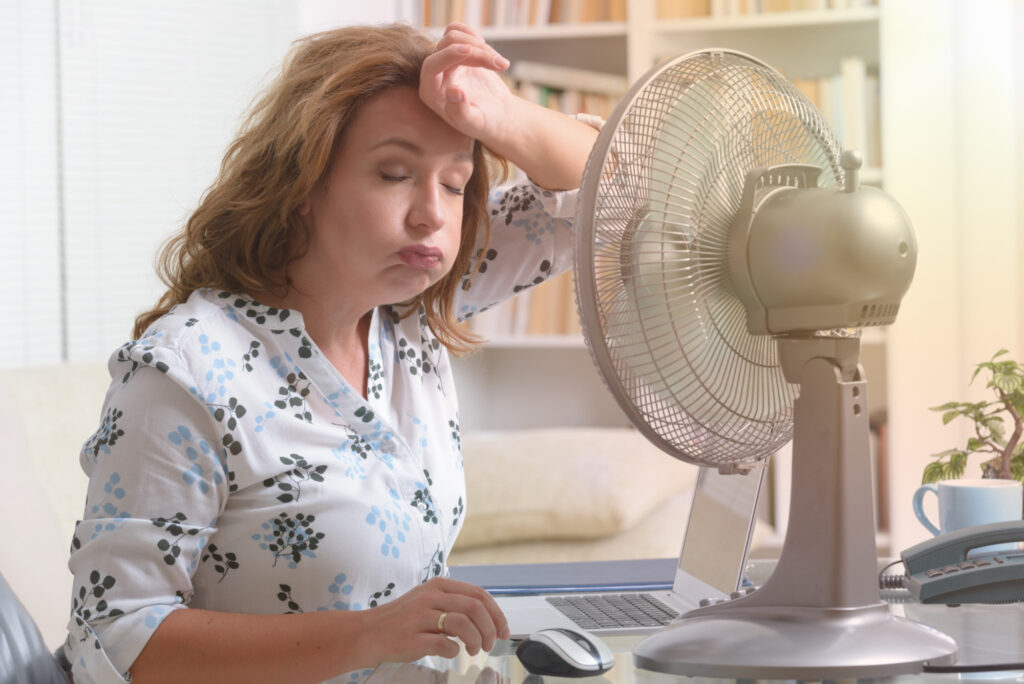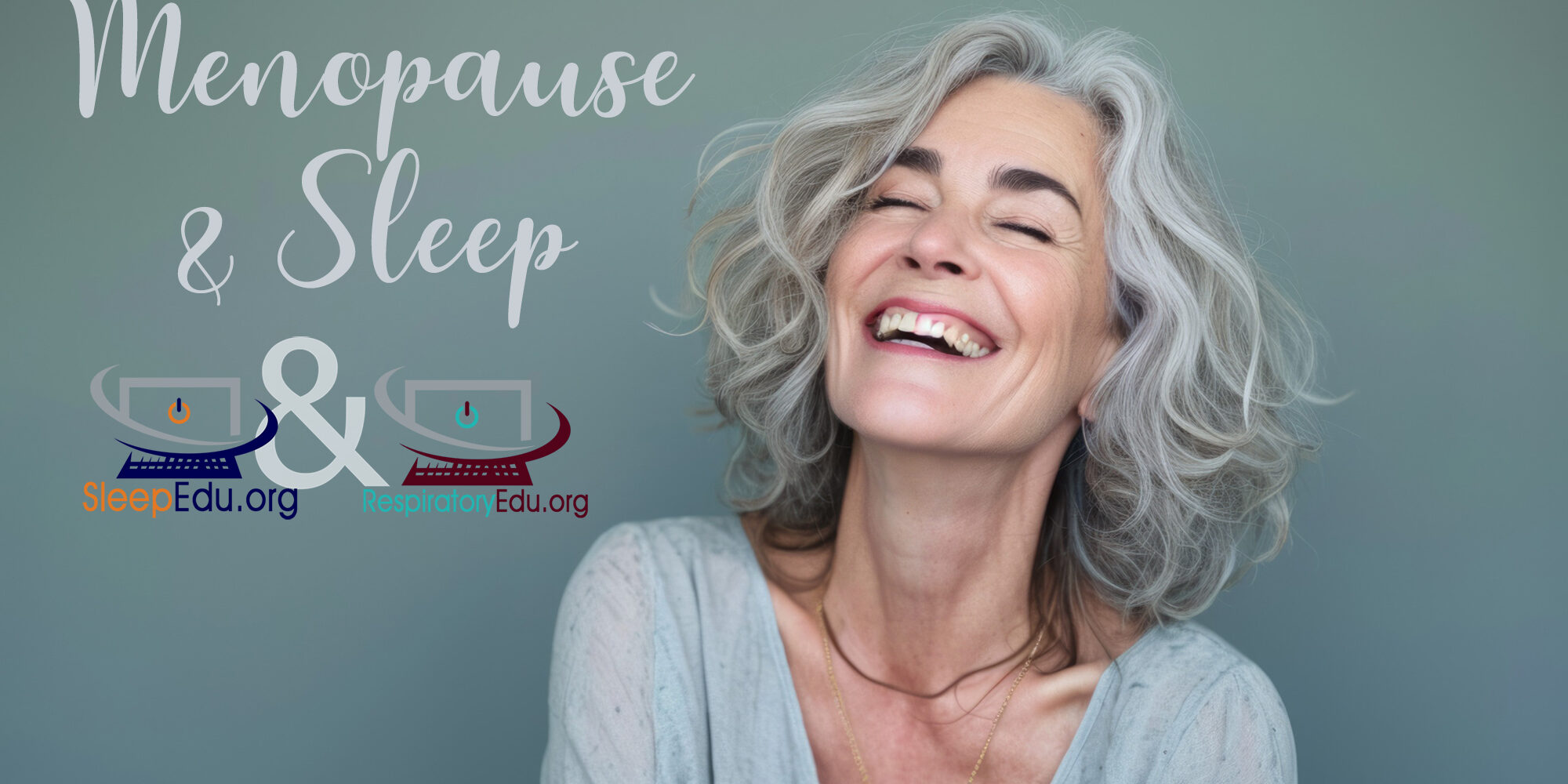Introduction
Menopause has significant effects on women today, including sleep. Changes in the biological life cycles, extreme hormonal changes and with advancing age, women are at an increased risk for sleep disturbances such as insomnia, poor sleep quality, and sleep deprivation, as well as sleep disorders such as Obstructive Sleep Apnea (OSA) and Restless Legs Syndrome (RLS).
Description
Menopause is defined as the time of the final menstrual period, as a natural process in normal female aging, resulting from depletion of ovarian follicles, and occurs at a median age of 51 years,i with the menopausal transition usually starting at about 47 years.ii
Stages of Menopause
The Stages of Reproductive Aging Workshop standardized the division of a woman’s late reproductive life, broadly grouping women into three categories (reproductive, menopausal transition, and post-menopause) further subdivided, according to menstrual cycle length and regularity.iii Perimenopause encompasses the menopausal transition and the first year after the final menstrual period. The term “climacteric” may also be used to describe perimenopause and the part of the post-menopausal period in which climacteric symptoms occur.

Physiology
Ovarian function begins to deteriorate, and function of the hypothalamic-pituitary-ovarian axis begins to change, several years before menopause. These endocrinological changes typically occur gradually and are not linear. Levels of follicle stimulating hormone (FSH) rise overall and are typically ≥25IU/L in the late menopausal transition.
In association with the fluctuation and gradual decline in estrogen (typically estradiol) across the menopausal transition, menopausal symptoms emerge and include vasomotor symptoms (hot flashes and sweating), sleep disturbances, and mood symptoms. The incidence increases from 16%–42% to 39%–47% at peri-menopause and 35%–60% at post menopause and surgically postmenopausal (47.6%) women.iv
Studies have reported that 33%–51% of women show a dramatic increase in sleep disturbance in the mid-life years, a time when they enter menopause, (i.e., during transition from peri-menopause to menopause).v Difficulty in sleeping has been reported in 38% of elderly women and age-adjusted rates have been reported highest in the late perimenopausal (45.4%).
The menopausal transition is associated with a rise in insomnia-related symptoms, particularly difficulty in staying asleep, which has a negative impact on the quality of life. Vasomotor symptoms (VMS) are a key component of sleep disruption during the said transition.vi

Menopause-Related Sleep Disorders
Vasomotor symptoms are the most common menopausal symptoms reported by 75% to 85% of postmenopausal women. Hot flashes are defined as a sudden sense of body heat or redness around the face and neck, often accompanying sweating and tachycardia. Most symptoms last for 1 to 2 years after menopause but rarely last for more than 10 years. Although many perimenopausal and postmenopausal women experience vasomotor symptoms, the cause is not clear. However, there is evidence that vasomotor symptoms are caused by estrogen withdrawal.vii In some studies, vasomotor symptoms of perimenopausal and postmenopausal women have been reported as one of the causes of sleep disturbances. A recent study has shown that vasomotor symptoms were related to poor sleep quality.viii Other studies have supported this finding by suggesting that hormone therapy improves sleep quality.ix
Additionally, endogenous secretion of melatonin decreases with increase in age and varies with gender, and in menopausal women, it is associated with a significant reduction in the melatonin levels, thus affecting the sleep patterns.x

Mood disorders such as anxiety or depression are also associated with sleep disorders in postmenopausal women.xi Difficulty in falling asleep can cause anxiety, irritability, inadequate sleep and possibly depression.xii One of the main causes of depression is insomnia. In addition, women with hot flushes are more likely to develop depression. Women with depression and hot flushes have a lower quality of sleep than women without depression. Consequently, depression and hot flushes may have additional effects on sleep pattern.
Summary
Menopause can have significant effects on women, including, but not limited to those articulated above – including significant effects on sleep. A complete 2-hour course awarding 2 CEU’s through BRPT will be appearing soon at Sleepedu.org.
References
i Luoto R, Kaprio J, Uutela A. Age at natural menopause and sociodemographic status in Finland. Am J Epidemiol. 1994;139(1):64–76.
ii Roberts H, Hickey M. Managing the menopause: An update. Maturitas. 2016;86:53–58.
iii Harlow SD, Gass M, Hall JE, et al. Executive summary of the Stages of Reproductive Aging Workshop + 10: addressing the unfinished agenda of staging reproductive aging. J Clin Endocrinol Metab. 2012;97(4):1159–1168.
iv Kravitz HM, Ganz PA, Bromberger J, Powell LH, Sutton-Tyrrell K, Meyer PM. Sleep difficulty in women at midlife: A community survey of sleep and the menopausal transition. Menopause 2003;10:19-28.
v Hsu HC, Lin MH. Exploring quality of sleep and its related factors among menopausal women. J Nurs Res 2005;13:153-64.
vi Baker FC, Lampio L, Saaresranta T, Polo-Kantola P. Sleep and sleep disorders in the menopausal transition. Sleep Med Clin 2018;13:443-56.
vii Al-Safi ZA, Santoro N. Menopausal hormone therapy and menopausal symptoms. Fertil Steril. 2014;101:905–915.
viii Lampio L, Polo-Kantola P, Polo O, Kauko T, Aittokallio J, Saaresranta T. Sleep in midlife women: effects of menopause, vasomotor symptoms, and depressive symptoms. Menopause. 2014;21:1217–1224.
ix Polo-Kantola P, Erkkola R, Irjala K, Pullinen S, Virtanen I, Polo O. Effect of short-term transdermal estrogen replacement therapy on sleep: a randomized, double-blind crossover trial in postmenopausal women. Fertil Steril. 1999;71:873–880.
x Pines A. Circadian rhythm and menopause. Climacteric. 2016;19:551–2. xi Parry BL, Fernando Martínez L, Maurer EL, López AM, Sorenson D, Meliska CJ. Sleep, rhythms and women’s mood. Part II Menopause. Sleep Med Rev. 2006;10:197–208.
xii Terauchi M, Hiramitsu S, Akiyoshi M, Owa Y, Kato K, Obayashi S, et al. Associations between anxiety, depression and insomnia in peri- and post-menopausal women. Maturitas. 2012;72:61–65.








